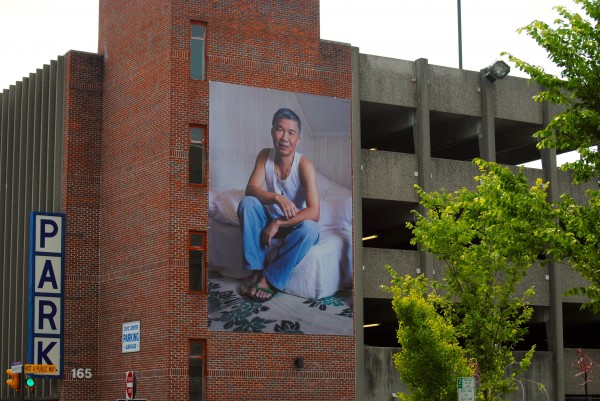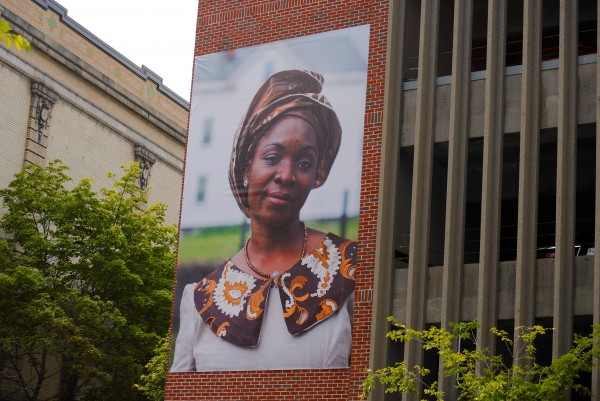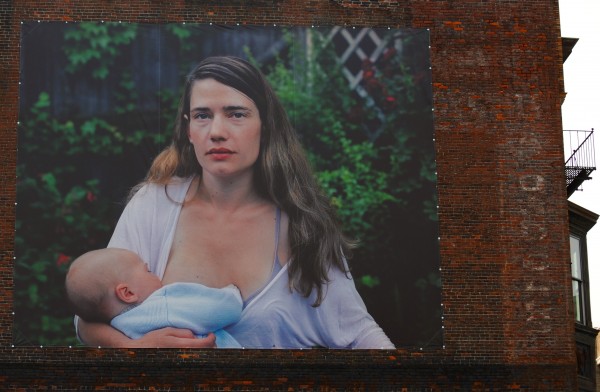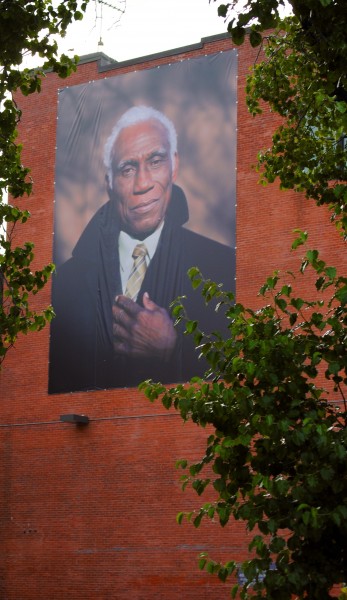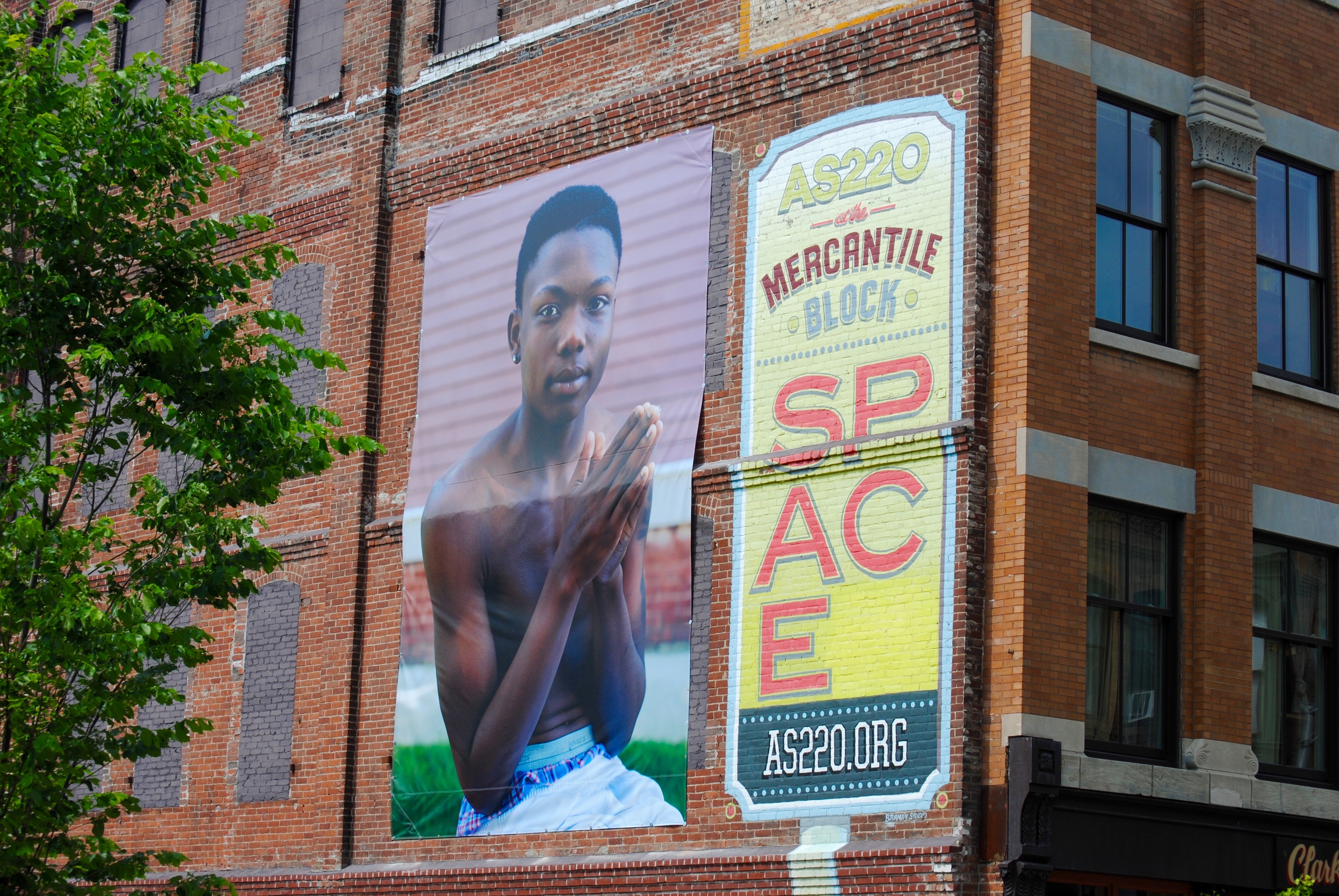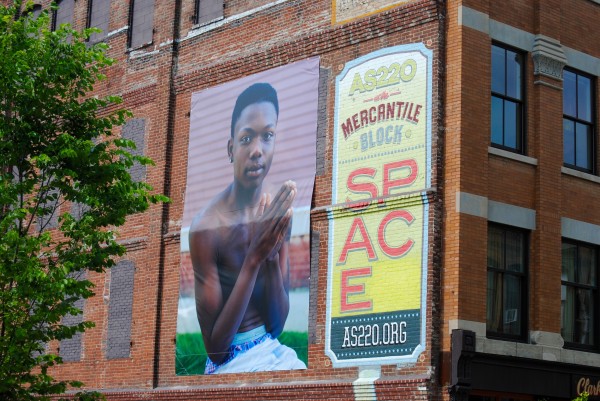
At the RISD Museum Thursday evening, I was pleased to hear Martha Rosler’s essay, “In, around, and afterthoughts (on documentary photography)” referenced during Mary Beth Meehan’s “Public Conversation.” Meehan explained the genesis of her current photography project: Eight large scale photographs attached to buildings throughout downtown Providence. The photographs have been selected from her Tumblr, Seen/Unseen.
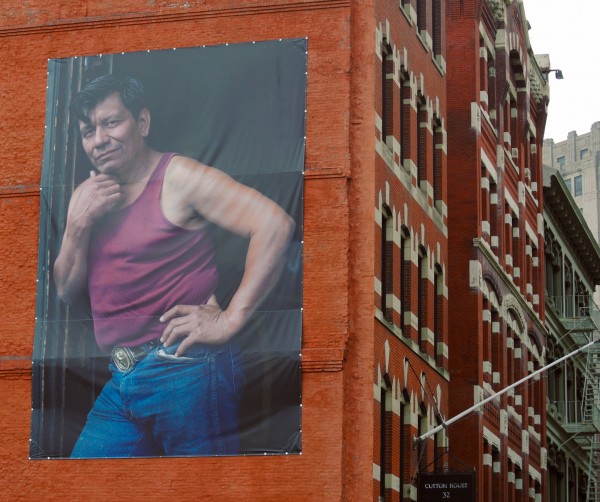
These remarkable photographs of ordinary Providence residents demonstrate the beauty and diversity of the city’s residents. Created in conjunction with the 2015 Providence International Arts Festival, there is also a larger exhibition of her portraits at the Providence City Hall.
The banner concept was first explored by Meehan in Brockton, Massachusetts where 12 large scale banners were displayed in that city in 2012. According to Meehan, after the Brockton display was unveiled, AS220’s Bert Crenca asked Meehan why she wasn’t doing something like that in Providence. So here we are.
Meehan talked about confronting Rosler’s ideas during her brief talk at RISD. Rosler famously talked about the way documentary photography was exploitative of its subjects and of how it was not actually accomplishing its goal as an agent of social change because of its commodification as a consumer product. Rosler’s critique has long informed my own work, such as it is, and I attempt to answer Rosler by not commodifying my work through strict copyright enforcement (I use the Creative Commons copyright to “free up” my work for use by others), and by working to eliminate myself from my photographs as much as possible, in order to empower and amplify the voices of my subjects. It’s an ongoing process, and I realize that it is a difficult, if not impossible, goal.
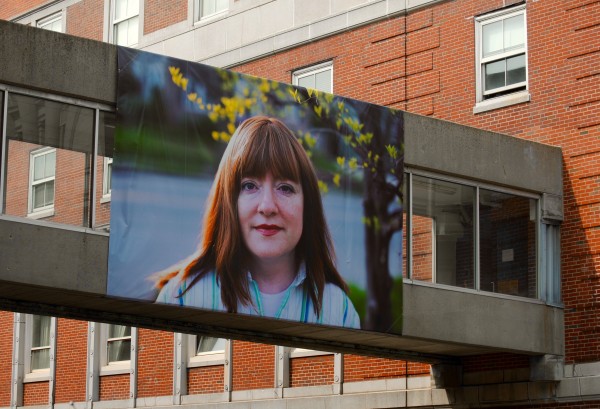
Meehan solves Rossler’s dilemma by collaborating closely with her subjects. Three influential photographers were cited during her presentation, Fazal Sheikh, Dawoud Bey and Wendy Ewald. All were known to spend time getting to know their subjects before taking their pictures, or to collaborate with their subjects in different ways. Through her style of collaboration, Meehan hopes to honor her subjects, rather than exploit them as subjects in a gallery. (For the opposite of this approach, check out the latest exhibition from the reprehensible Richard Price.)
Here’s Rossler, writing circa 1981. Her insights are still pertinent today:
…the higher the price that photography can command as a commodity in dealerships, the higher the status accorded to it in museums and galleries, the greater will be the gap between that kind of documentary and another kind, a documentary incorporated into an explicit analysis of society and at least the beginning of a program for changing it. The liberal documentary, in which members of the ascendant classes are implored to have pity on and to rescue members of the oppressed, now belongs to the past. The documentary of the present, a shiver-provoking appreciation of alien vitality or a fragmented vision of psychological alienation in city and town, coexists with the germ of another documentary (a financially unloved but growing body of documentary works committed to the exposure of specific abuses caused by people’s jobs, by the financier’s growing hegemony over the cities, by racism, sexism and class oppression, works about militancy, about self-organization, or works meant to support them. Perhaps a radical documentary can be brought into existence. But the common acceptance of the idea that documentary precedes, supplants, transcends, or cures full, substantive social activism is an indicator that we do not yet have a real documentary.”
As you think on this, get out and go downtown this weekend to fully appreciate Mary Beth Meehan’s work, both outside on the streets of Providence and inside at the Providence City Hall. You won’t be disappointed.
